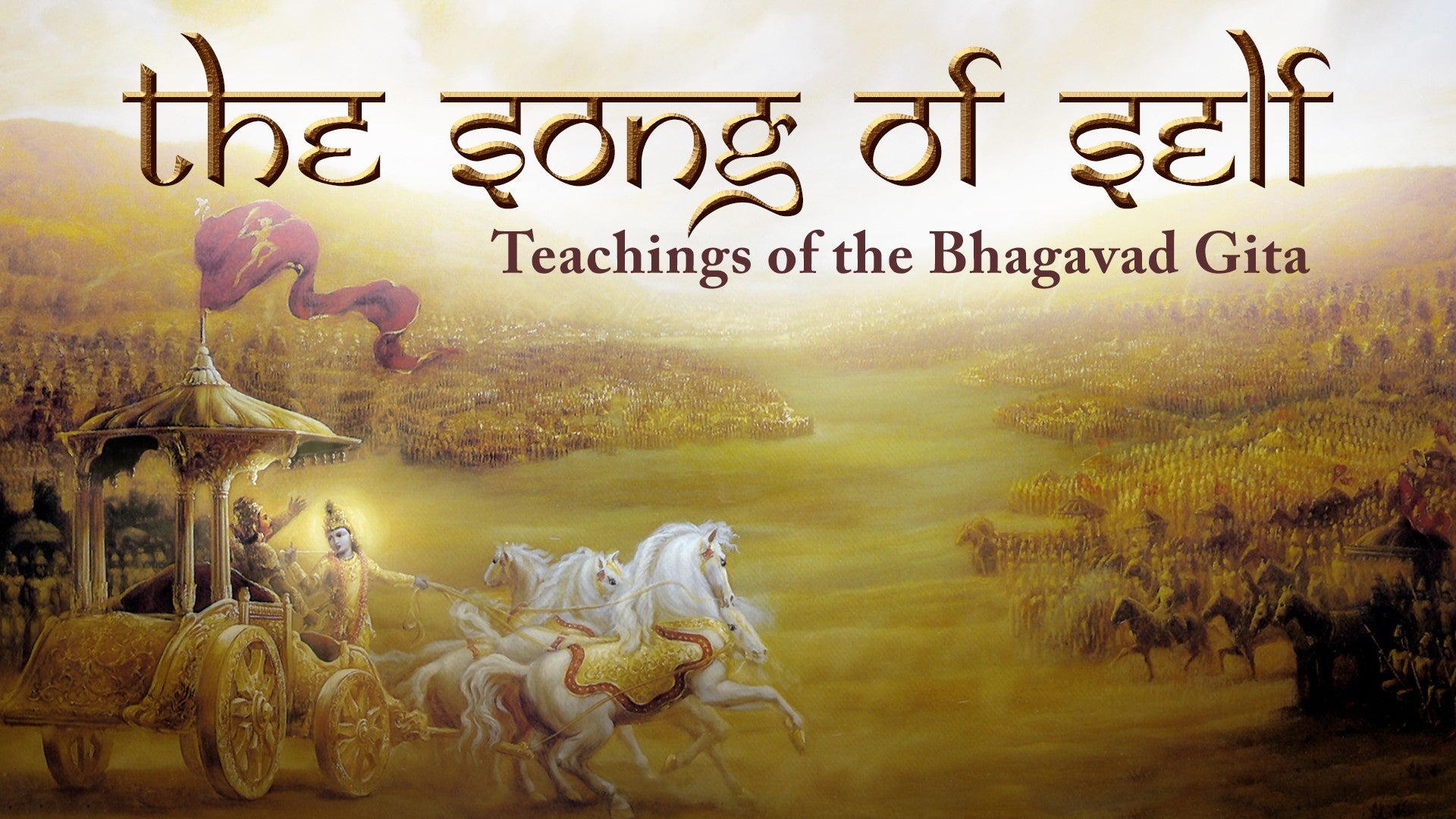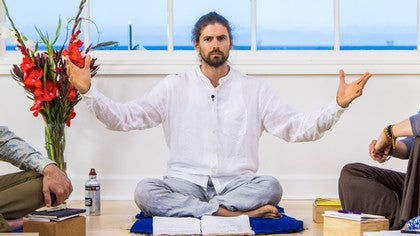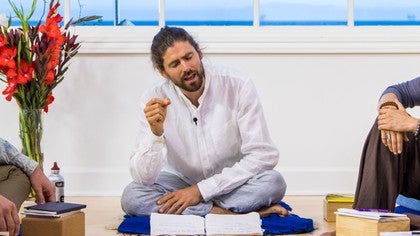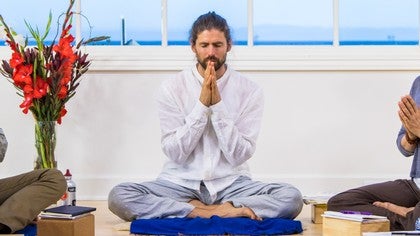Description
About This Video
Transcript
Read Full Transcript
So here comes the 71st verse. Krishna has just mentioned that if you can become like the ocean and always feel that sense of fullness, wellness, regardless of what you meet, then you attain peace. But if you are hankering after desires, you don't attain peace. And he continues this idea now in the 71st. Yaha yakama niyasaravan pumans cherty nispreha nirmamone rahankaraha sashanti mati kacchati saha, that person, shantim, peacefulness, adi kacchati attains, comes to, approaches. So who approaches and attains to peacefulness? Krishna says, yathpuman, that person who, who does what? Well, kamaan vihaya, who relinquishes and goes beyond all of those perturbing desires, who charati, who moves in the world, nispreha, free from that hankering, free from that desirous longing. nirmamone, nirmamone, nir means without, without the sense of a mind, and nirahankaraha, without that sense of I and me, and I'm only this and I'm not that. Such a person attains peacefulness. So on the surface of the sutra, basically, there's a recipe here for peace or peacefulness. Just get rid of desire, get rid of I, me, mine, and then you're peaceful. Now, is this realistic? I don't think it is, at the surface. So we have to probe beneath the surface a little bit. So just to say, oh, let's forget about desire, forget about I, me, mine, but ahankara, ahankara in Sanskrit means the eye maker. And there's the eye that when we are a human being in a body, this is part of our mental apparatus, this is part of our conscious apparatus. And actually, it's essential to stay alive and to navigate the opportunities of a human life. Some sense of ahankara is necessary. It's what helps you stay safe when you cross the road, for example. It's what helps you work with healthy boundaries in all sorts of situations. But I think what Krishna is emphasizing here is don't let yourself be carried away or dominated by the sense of I'm this, I'm not that, by the sense of this is mine, and that's not. If you become very attached to the idea of this is mine, then you can maybe leak or waste or fritter a lot of energy. So if you become very attached to a sense of, oh, this is mine, and I want this and I want that, I want to increase my dominion and increase my possessions, there is the possibility that could kind of leak a lot of energy. It could consume a lot of energy and divert energy from the type of attitude which would be conducive to actual peacefulness and deep well-being. Similarly, ahankara, if we have a very limited idea of ourselves and we're very attached to that limited idea of ourselves, then it could actually stop us pursuing opportunities which will reveal more of what we're really made of. For example, if you are very attached to the idea that I am a this, whatever it might be, and a particular situation arises in which you have to depart from that, and this invitation would allow you to perhaps investigate or explore other parts of yourself that you really like to, but your attachment to this limited definition of what you are might stop you doing that. So I don't think Krishna is saying give up the sense of I, me, no. He's saying work skillfully with it. Sometimes people have the idea that in yoga we have to kill our sense of limited ego. But I think this is actually, again, misleading. One teacher that I read in his autobiography, a teacher called Muktananda, he said, you don't have to kill your ego. You have to expand it so it includes everything. The idea, if you feel that separation all the time, then you're reaffirming or you're reinforcing the limited idea of yourself. But if you recognize that all of this is part of my experience, it can invite you into an attitude which is much more conducive to harmony. Because whatever you meet, well, this is part of my experience, now let me work with it as skillfully, as harmoniously as I can. And then even challenging situations can become great opportunities to actually expand our sense of who I really am. And he also says, Krishna says in the first part, Saravan, Kamaan, Vihaya, all kamas, all desires left behind. That person, charity, moves, operates in the world, nisprah, free from desire. So two ways of saying desire, sprhaha and kama. But again, without desire, how can we do anything? So I would suggest that actually in yoga, desire is never the enemy. Desire is just a dualized sword. And so we have to learn to use it skillfully. Make desire your friend. Don't let it be a tyrant that dominates you and bullies you.
So Krishna uses two words here to describe desire. So if we consider those words more closely, it can help us kind of get a clearer picture. Sprhaha is like I'm really, it's like you're consumed by that desire. And kama, it's like you're kind of losing yourself in it. So I think what he's really saying is that the wise one, the one who's in the state of peace, is not consumed or overwhelmed or lost or clouded by desire. And similarly, that person is not unduly limited or bound by a sense of I'm this and I'm not that. And then we can come to peace. But I would actually say something that if we want to know peace, we actually have to come to individuality. Now what do I mean when I say that? We have to learn to be the individual that we really are. So for me, what this means is an individual is an indivisible human. So yoga recognizes that we're made, constituted of many different powers. The powers of our bodies, the powers of our senses, the powers of our minds and the powers of our emotions. Sometimes in the course of a human life, it's very normal to feel split. Our mind is pulling us in one direction. This sense is pulling us in another direction. Our emotions, our gut is saying do something else. So yoga is about bringing it all together into an indivisible state where all the parts know each other, are familiar with each other and confident enough and relaxed enough in each other's presence to work together as one. So I would suggest that the idea is not to try to escape the reality of human life, which is yeah, I'm here in this body, I'm here not there, but to work with it and find the oneness and the integration that is possible here when we pay close attention to the different powers of which we're constituted. Because if we can experience individuality, oneness, true cohesion here, then we're giving ourselves a true platform to actually be able to experience cohesion and integration out there.
The Song of Self: Bhagavad Gita: Chapter 2
Comments


You need to be a subscriber to post a comment.
Please Log In or Create an Account to start your free trial.








